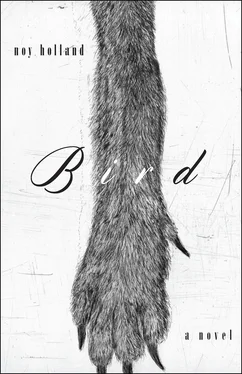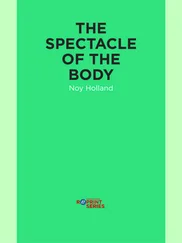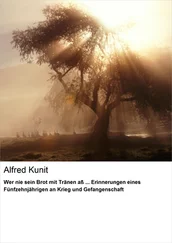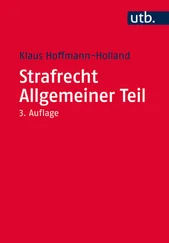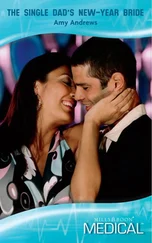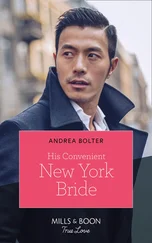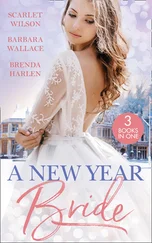“‘Get him down,’ you said, ‘or I’ll shoot him!’”
“Little Bit, it is nothing I ever wished to do.”
They went along some, quiet, Doll Doll sucking at her sleeve. The clouds ate away at the mountains. You couldn’t see much.
“I can’t see.”
She banged her head on the dashboard. She was blacking out, holding her breath, “I can’t see.”
“Now, Doll?”
“I fucking hate these fucking mountains and these fucking wasted trees.”
Tuk swung the truck onto the shoulder and held her.
“Talk it out,” he whispered. He stuffed his fingers in her ears. “Use your words.”
Doll Doll hummed and sniffled and Tuk kissed a patch on the top of her head where the hair had been snatched out. He closed his eyes.
Forgot, or seemed to, that they were not alone. Wind rocked the truck. Snowball whimpered and yipped. The heat was off and the cold seeped in and the steam they all made on the windows frosted prettily to ice.
“Take your breath,” Tuk instructed, and tipped her chin up so Mickey and Bird could see.
Doll Doll was smiling again, trying to.
“Now make these poor people feel at home.”
The sun smudged through the clouds as if on cue and all their faces pinked up but for Doll Doll’s, which was smeared a gluey blue.
“What a day, what a day for driving,” Tuk declared.
“I go for the suffering dumb.”
“If you smack a fly—” Tuk said.
“Eat it. You have to eat anything you run over or otherwise maim or kill. It’s a rule. So you won’t. While we travel.”
“Friends, it isn’t only you. She’ll tug a frog, for instance, from the mouth of a snake. She’ll bring a spider in from the cold. She poured sugar out in the kitchen for the ants— they have to eat, too. Freed an ox from its traces, a honeybee from a web. She lets the cows out—”
“—to run with the dogs—” Doll Doll said.
“—and with the llama she’s set loose and the chickens. Plus the shoat! the open range! a 900-pound pig! Gone off to grub every posey patch, every hillock of beans in the county.”
“I do do that. It’s my nature,” Doll Doll said. “I have a very free and helpful nature. I like a gate that’s open. I like Wolfie here and Snowball and how we all light out together like this and let each other go.”
“Gather up, giddyup. Take a picture. Make it quick! A hard little sprint and she’ll be gone.”
“I’m very Doll Doll,” Doll Doll admitted. “I’m very moving on.”
Tuk shook his head agreeably — an agreeable man, easy to love, in a hapless sort of way. Surprised by himself — that was the feeling. He clouded over at a clap and his hands shook and he shored himself up against the steering wheel to steady himself to say, “So who is it cleans up after? Tuk baby cleans up after. That’s Doll Doll all the way.”
“After what?” Doll Doll said.
“Whatever you’re finished with. Anything gimpy or little, try. Try the lonely. What’s weary, what’s maimed.”
He pulled his hat up, which tweaked his eyebrows. He looked more surprised than ever.
“Ever living one.”
“Ever living what?” Doll Doll said.
“Ever. Living. One.”
“She’s not,” Bird said, “living.”
“She?”
“Maggie,” Bird said. “You know, the dog?”
“Is your mama?”
“What?”
“Living. Dead? Is she dead?” Doll Doll asked, hopefully.
“She—” but Bird had never said it out among strangers in the world.
“Or your daddy either one are they—”
“Living?”
“Have you got any people anywhere she wants to know still living?” Tuk explained. “Because her mama is dead and her papa. Her sister is dead and her brother. And her sister’s little girl who was just a little girl and the fish and the rabbit and the dog. All her dolls burned up and her dresses and shoes and any little person or treasure that was hers and her hairbrush and matching mirror set with the handles inlaid with jewels. Flamed up. She was in the yard out watching. She was not supposed to be in the yard at all. She was supposed to be up high where her people lived, doing the morning chores.”
“It was a little dry yard fenced around,” Doll Doll added, “how my mama wanted. So nobody could snatch me. Mama put up a high fence, singing. She sang songs from the church and the country while she worked and weaved the fence with flowers. They were flowers you could find in the desert. You could maybe find them here.”
“If you looked,” Tuk said, “if you were lucky. But you’re not lucky, sugar lump. You never have been.”
“Tuk wants to take me back there to look at it. I don’t want to, I never will.”
“A body runs and runs,” Tuk said. “Nobody gets away. People don’t think, they’re in a hurry. It isn’t small. They park the car, can’t think, can’t be bothered. City folks, big city life, too much on their minds. Park double. Save a sec. Park anywhere, park triple. Suit yourself, okey doke, move along. Make a deal! Barking on your cellaphone. Flashers in the fire lane. Hope for the best, move on. Fire trucks can’t move? Kids and babies? Okey doke. Back in a flash, back in two, hope for the best, hey Johnny? Lord. They’d be alive today, your people, if not for that fellow in a hurry parked so the fire trucks couldn’t move. It’s the truth. Show your arms, sugar lump, they’re like plastic. Melted down. And you’re the one got away. Just a kid, hanging on the chain link, watching. Just a kid how you see left living, call it living. I found her laid out in the Greyhound station in Waxahatchie, Texas. She had a little blanket she slept on. She was eating out of a bowl.”
Doll Doll had pulled up her knees to her chest and stretched her bodysuit down across them, unsnapped. The crepe made a tent to her ankles, a hole big enough at the collar to stick down her face down through.
“I found you sleeping, Little Bit. You had your thumb in your mouth. When I picked you up and carried you you never once opened your eyes or moved all the way I carried you home.”
“You called ithome,” Suzie says, “but it was slumming. It was dumb. You could have lived uptown where I live. You could have moved to that beloved country where you holed up the week in that wind you both liked. That is Prairie Lee’s wind. It always was, Bird. You can’t have it. You never really could.”
“Now we have heard from one small country.”
“Be nice,” Suzie says. “You thought he’d marry, that was hard. Now it’s hard he never did. What is that? You’re not happy? You don’t want to live how you do?”
“But I do,” Bird says.
“Exactly.”
“I want to stay right here,” Bird says. “It’s quiet and I like the seasons and how it all moves out and in. It’s like rooms outside when the leaves come and every road’s a tunnel and everything’s moving in. It closes in. I’ve learned to like that.”
“You know why?” Suzie says. “Because it’s autumn. The leaves are falling. The woods open up. Anytime things are moving out, you’re in love with moving in.”
“You might be right,” Bird says.
“Trust me. You say it every spring and every fall. That’s not your place, Bird. I don’t know what is. The great dry blue-eyed quiet? Could be. But when’s the last time you saw it, sugar? How long has it been?”
Bird wrote: I saw the old place, Mother.
It was all hemmed in by houses. The ditch where the red mare threw you dried up and they filled it in. They tore the barn down. Didn’t need it, I guess. The little cross is still there for Hoppy in the mint we planted for our drinks that day. Did I want to come in? the people asked me.
Читать дальше
